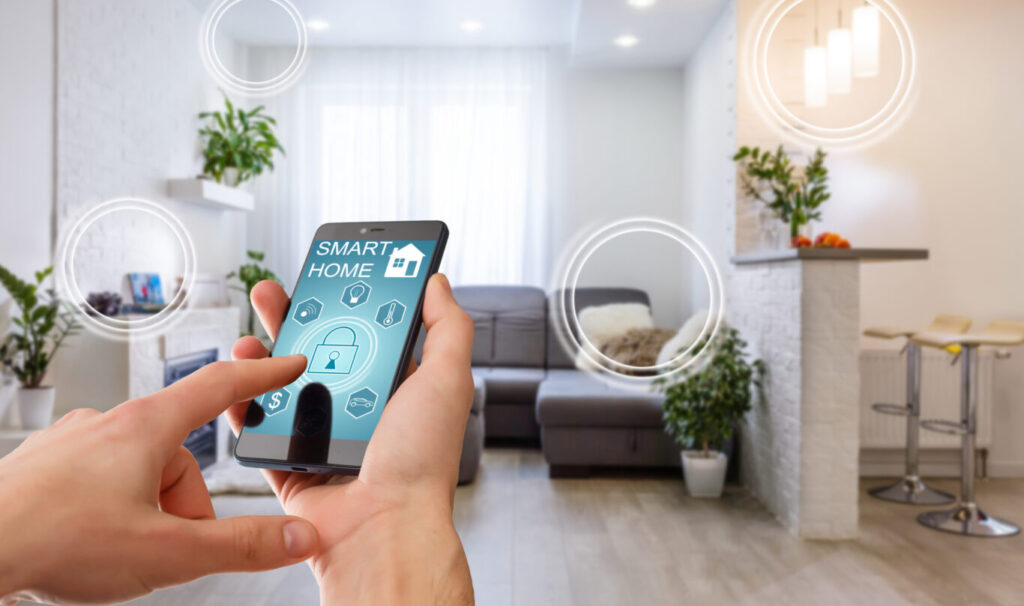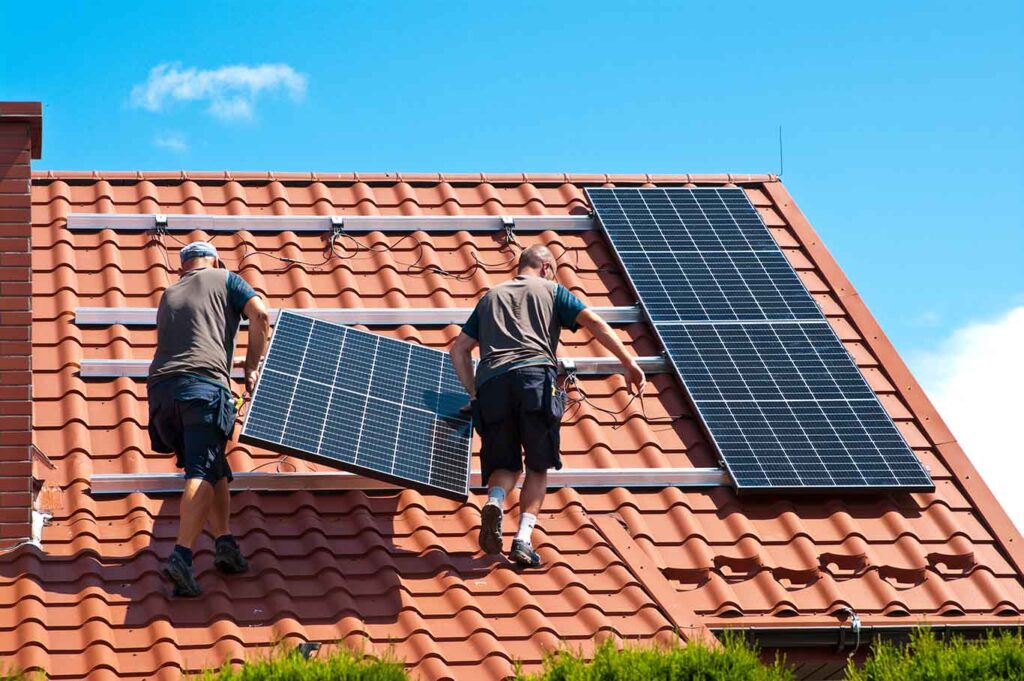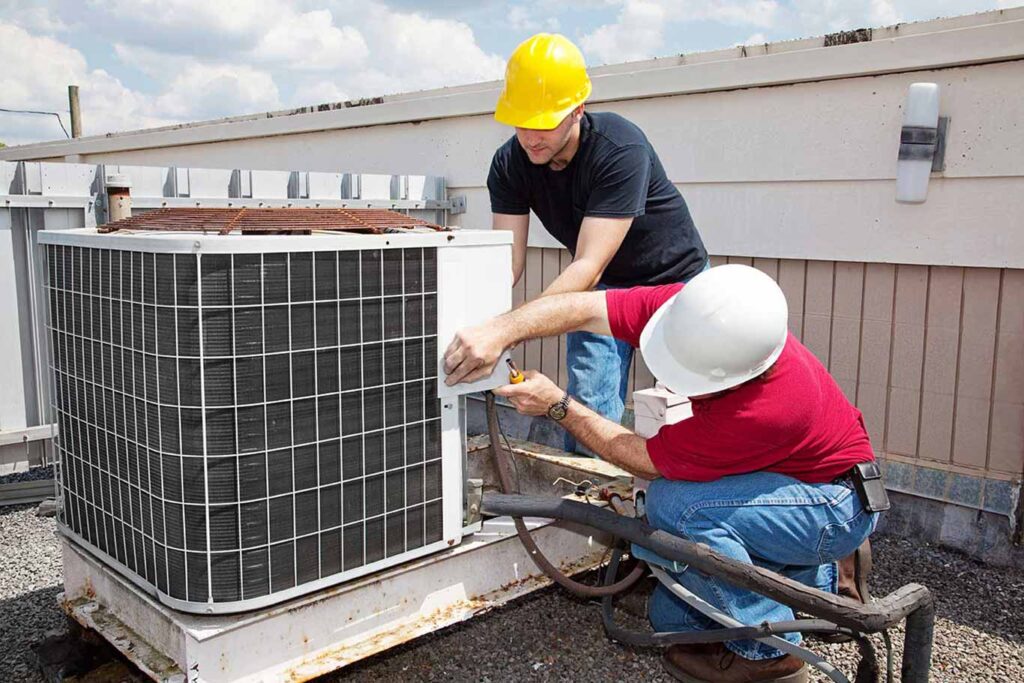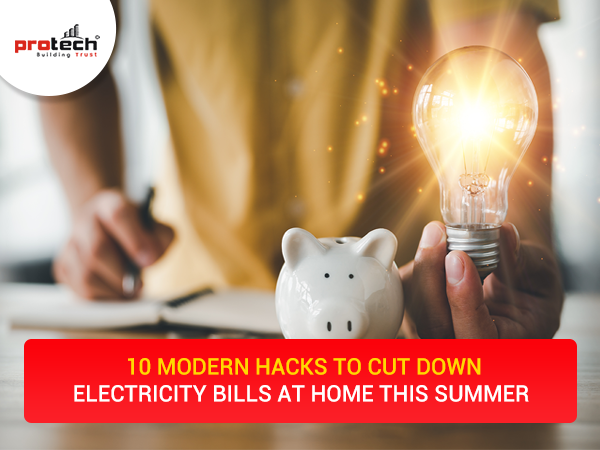Introduction
The rising electricity bills is one of the main concerns of people living in a city like Guwahati. While the city has grown bigger, the demand for electricity has grown too. It is almost impossible to escape from the effects of increasing size of the electricity bills. Undoubtedly, this has become a great burden for households and commercial places alike.
To add to that, another major announcement was made by APDCL a couple of days ago. An increase of 50 paise per unit will be added to electricity bills beginning on February 1, 2023, as part of the Fuel and Power Purchase Price Adjustment (FPPPA). This is in addition to the 79 paise per unit fee that all consumers were paying in the months of November 2022, December 2022, and January 2023.
10 Modern Hacks to Cut Down Your Electricity Bills
Now that warmer months are approaching, it has become extremely important for residents to make some serious changes or adjustments to their current homes and lifestyle to save money on their electricity bills. In this article, we will discuss 11 hacks to cut down your electricity bills at home this summer. But the best thing is, these hacks will serve as a great investment for your home and will be effective during every season.
Invest in energy-efficient appliances
Look for appliances with the ENERGY STAR label, which indicates that they use less energy and save you money on your electricity bill. Switch to LED light bulbs, install dimmer switches, and use natural light whenever possible to reduce your electricity use.
Use smart home technology

Smart home devices such as smart thermostats, smart lights, and smart plugs can help you manage your energy use and reduce your electricity bill by providing you with more control over your home’s energy consumption. Smart home technology has come a long way in recent years, offering a range of affordable and user-friendly solutions for managing and reducing your home’s energy consumption. Whether you’re looking for simple solutions like smart light bulbs or more advanced systems that integrate with your HVAC and home security systems, they are a perfect choice. Here are a few ways smart home technology can help you save on electricity:
- Automated Energy Management: Smart home systems allow you to automate your energy use, so you don’t have to remember to turn off the lights or adjust the thermostat when you leave the house. With a smart home system, you can set schedules and remotely control your devices from anywhere, reducing energy waste and lowering your electricity bills.
- Energy Monitoring: Smart home systems can also monitor your energy use, providing you with real-time data on your electricity consumption. This allows you to identify areas where you can reduce energy waste and make adjustments to your energy use to reduce your electricity bills.
- Improved Home Comfort: Smart home technology can also help improve the overall comfort level in your home by allowing you to set temperature and lighting levels to your preferences.
- Reduced Energy Waste: Smart home technology can also help reduce energy waste by providing you with reminders to turn off appliances and electronics that are not in use, reducing standby power consumption.
Install a solar panel system to reduce electricity bills

Solar panels can provide a significant portion of your home’s energy needs, reducing your reliance on traditional electricity and lowering your bill. Installing a solar panel system can be a great way to save on electricity bills and reduce your carbon footprint. By harnessing the power of the sun, solar panels generate clean, renewable energy that can significantly reduce your reliance on traditional, fossil fuel-based electricity. Depending on the size of your system and your energy consumption, you may be able to eliminate your electricity bill entirely or significantly reduce it. In addition to reducing energy costs, installing a solar panel system can also increase the value of your home and make it more attractive to potential buyers. Furthermore, there may be financial incentives such as tax credits and rebates available in your area that can help offset the cost of installation. A solar panel system is a long-term investment that can provide significant benefits, making it an attractive option for homeowners looking to save on their electricity bills.
Insulate your home
Proper insulation can prevent heat loss in the winter and heat gain in the summer, reducing the amount of energy you need to use to maintain a comfortable temperature. Insulating your home is an investment that can pay off in the long run, saving you money on your monthly electricity bill and improving the overall energy efficiency of your home. There are several types of insulation materials available, including fiberglass, cellulose, and spray foam. A professional energy auditor can assess your home and recommend the best type of insulation for your needs, taking into consideration factors such as the type of construction, your budget, and local building codes.
- Prevents Heat Loss in Winter: Insulation acts as a barrier that helps prevent heat from escaping your home during the winter. This means your heating system doesn’t have to work as hard to maintain a comfortable temperature, reducing energy consumption and lowering your electricity bills.
- Prevents Heat Gain in Summer: Insulation also helps prevent heat from entering your home during the summer, reducing the amount of energy your air conditioning system needs to use to keep your home cool.
- Improves Energy Efficiency: By reducing heat loss and heat gain, insulation can help improve the overall energy efficiency of your home, reducing the amount of energy you need to use to maintain a comfortable temperature and lowering your electricity bills.
- Increases Home Comfort: Insulation can also help improve the overall comfort level in your home by reducing drafts and maintaining a consistent temperature, making your home more comfortable to live in.
Sealing air leaks reduces electricity bills
Sealing air leaks is a simple and cost-effective way to reduce energy waste and lower your electricity bills. Check your windows, doors, and other areas for air leaks and use weather stripping, caulking, and other methods to seal them. Sealing air leaks can help you with the following:
- Maintaining a Consistent Temperature: When there are air leaks in your home, warm air can escape in the winter and cool air can escape in the summer. This means your HVAC system has to work harder to maintain a consistent temperature, consuming more energy and driving up your electricity bill. By sealing air leaks, you can prevent this energy waste and reduce your electricity use.
- Preventing Moisture and Humidity: Air leaks can also allow moisture and humidity to enter your home, which can cause mold, mildew, and other indoor air quality problems. By sealing air leaks, you can prevent moisture and humidity from entering your home and reduce the need for energy-intensive dehumidifiers and air purifiers.
- Reducing Noise: Air leaks can also allow outside noise to enter your home, making it harder to enjoy a peaceful living environment. By sealing air leaks, you can reduce outside noise and create a more peaceful and comfortable home environment.
- Improving Home Comfort: By sealing air leaks, you can improve the overall comfort level in your home by preventing drafts and maintaining a consistent temperature.
Upgrade your HVAC system

An older HVAC system can consume a lot of energy, so consider upgrading to a more energy-efficient system to reduce your electricity bills.
- Improved Energy Efficiency: Newer HVAC systems are designed to be more energy efficient, using less energy to heat or cool your home. This can result in lower electricity bills as you use less energy.
- Better Temperature Control: Modern HVAC systems have advanced features that allow you to control the temperature in your home. This means you can avoid wasting energy by not overheating or over-cooling your home.
- Increased Efficiency of Heat Transfer: An upgraded HVAC system may also have a more efficient heat transfer system, which can reduce energy loss and lower your electricity bill.
- Improved Indoor Air Quality: Newer HVAC systems often come equipped with air filters that can improve indoor air quality, reducing the need to run your system as often and reducing energy use.
- Reduced Maintenance Costs: Upgraded HVAC systems are typically more reliable and require less maintenance, which can save you money on repair and maintenance costs and reduce the need for energy-intensive repairs.
Use a clothesline or drying rack
Instead of using a clothes dryer, hang your clothes to dry or use a drying rack. This can significantly reduce your energy use.
Avoid using bigger appliances during the peak time of 10 am – 8 pm
Let us not add to the power consumption at the peak period mentioned above by simply using some of our everyday electrical equipment before and after this time period. Washing machines, geysers, irons, and building water pumps can all be relocated with little adjustment.
Maintain the AC temperature at 26° C

ACs are arguably the most significant cause of any summer power outage. A massive load is added to the system every time another AC is turned on and the temperature is dropped by one degree. We can, however, move towards continuous power if we abandon ‘freezing’ in favor of ‘cold enough’. Let’s all go with 26 this summer; it’s actually pretty pleasant.
Switch off from the plug point
When we use the remote to turn an electrical appliance OFF but leave the plug point “ON,” electricity is still being used in “stand-by mode.” These modest energy losses account for an astounding 5% of the total energy use of a city like Mumbai. This is not, by any means, a small percentage. Therefore, let’s turn off our air conditioners, televisions, washers, microwaves, geysers, and mobile chargers from the plug point after use. Each and every time.
We hope you found our article useful. Let us know if you could reduce your electricity bills after reading this blog. Also, we have a whole category of blogs on Home Hacks for your reading.
If you have any other queries, don’t forget to write to us.




